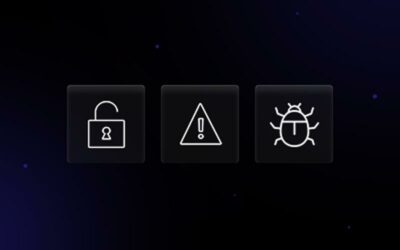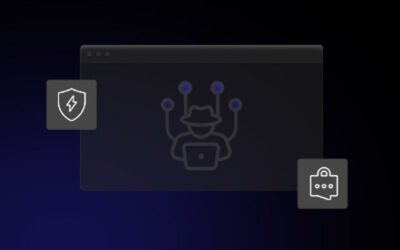These days students use the internet more than ever. They can study remotely, consult with professors, find out their exam schedules, share files, search for useful information, visit online libraries, and so on. Thanks to modern technologies, you can receive more advantages from your educational programs and have more free time.
But there is always a reason for rain on your parade. And though the internet helps to improve students’ experience, it also hides numerous threats. Every year dozens of educational establishments inform people about different incidents with their databases and networks. That’s why online internet security is the priority for students and teachers.
WHAT IS THE KEY PROBLEM OF CYBERSECURITY?
Scammers want to get your personal information to receive benefits from you. In the end, they want to get illegal access to your financial accounts directly or blackmail you into receiving money in return. This is their goal.
If you know the main dangers on the Web and tips for staying safe, then you don’t need to worry about your data. But if you are not sure of it, then this is the best time to fix this weakness of yours. That’s why getting useful cybersecurity habits is an essential step for all users.
If you study remotely, use the professional services of an essay writer, or just have a smartphone full of personal information, you must learn how to protect your data.
THE MAIN TYPES OF CYBERATTACKS
Usually, digital criminals use standard methods to get what they want. Here are the most popular types of cyberattacks:
- Email phishing. It takes approximately 80% of all cases. This attack involves emails that contain malware or steal your private information.
- Malicious software. Such applications can access and steal your data, or destroy your computer or mobile gadget.
- Ransomware. Such software aims to infect your device and encrypt your documents.
- Watering hole attack. Such a threat aims to compromise a user by infecting webpages he or she uses a lot. Such malware can even infect weak websites and harm you.
THE ROLE OF ARTIFICIAL INTELLIGENCE
Now everyone understands that the best you can do to protect any company or educational establishment from cyberattacks is to invest money in relevant protection. For improving your protection, it is important to adopt new technology such as artificial intelligence.
For instance, it can manage students’ needs and automate administrative tasks. As a result, teachers and students will be sure of extra protection without spending their efforts on it.
So many experts say that artificial intelligence is a very important tool to avoid cyberattacks. As a result, there would be fewer incidents with information leaks and blackmailing in the educational community.
THE INSIGHT OF CYBERATTACKS
Let’s see an example of a cybersecurity incident. New York City-based Monroe College faced a huge attack in 2019. Cybercriminals had a comprehensive approach: they hacked the college website, emails, computers, and so on. Such a situation puts over 8,000 students in danger because of losing their personal information. The college was asked to pay $2 million to their Bitcoin account, which cannot be tracked. The administration didn’t share whether the organization will pay or not, but external experts were involved in the situation to find a solution.
According to students’ evidence, they were taking their classes online, writing papers, and so on when the system was shut down. Many individuals faced different problems because they couldn’t reach their professors, delay their assignments’ deadlines, etc. As a result, such a cyberattack had changed a normal educational routine for thousands of students.
Police also tried to help New York City-based Monroe College, but it didn’t get far. Experts connected this incident with similar issues in Florida and Maryland. Sometimes college administrations prefer not to pay; in other cases, they pay cybercriminals. Experts say that such a position is wrong because it lets scammers continue their dirty business. Also, security consultants insist that it’s hard to suppose which educational establishments belong to the risk group. Usually, cybercriminals choose institutions without mentioning their name and the number of students and pay attention to the benefits they can receive in exchange.
The same problem may happen to an average student who wants to order essay writing or to try it for the first time. Be attentive and pay attention to warning signs. You can use essay writing help, and don’t worry about your security if you rely on a professional company. So take care to select only reputable essay writing services, so you do not need to worry about your cybersecurity.
If you need assistance with your research paper or want to share files using campus WiFi, you need to know relevant dos and don’ts. Here is a bit of advice for your safety.
USEFUL PRIVACY TIPS FOR STUDENTS
Now you understand that cybersecurity on college campuses is highly important. But don’t wait for the college administration to take care of everything. You can try these general tips to help yourself in the future.
You should remember the following recommendations:
–Check your bank account regularly. Cybercriminals don’t want to make a potential victim suspicious, so they prefer to steal small sums of money at the beginning. If scammers understand no one sees the missing dollars, then they may make large withdrawals. So you must create a habit to check your bank statements regularly to make sure only you have access to it.
–Save copies of important information. For example, criminals may steal your papers and blackmail you. If you have the only copy of your research paper on your cloud, then it’s highly likely you’ll pay them in exchange for the original copy. But having an additional copy in your backup will protect you from such a dangerous situation.
–Don’t click on suspicious links. This is a small reminder that you should think twice before visiting any unknown website or link, for instance, with cheap essay help. Such a small mistake can lead you to catch a virus. But just a little bit of attention can prevent you from sharing access to your account and bank information.
–Intelligently use public devices and networks. Most students prefer using their laptops and have mobile Internet, but sometimes you may use a public computer or network. Make sure that you do not save any passwords and always log out of your accounts before leaving the room. You should also use an incognito option in the browser or clean up your searching history.
–Use only trustworthy websites. No matter your needs, you should avoid unknown webpages. Whether you buy food, hire an essay writer, or look for a metro station on the map, you must make sure of the website’s quality.
–Install reliable security systems on your device. If you still don’t have such software on your computer or smartphone, then install it immediately. Prefer a multi-functional application that may filter your spam, block phishing links, and so on.
In any case, you should take care of your cybersecurity and use as many smart habits as possible. As a result, you can continue writing papers, chatting with friends, building your schedule, studying, doing homework, and living your safe campus life!



